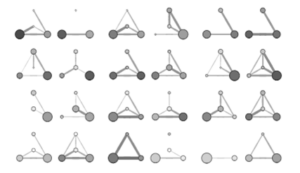The aim of this summer course is to enable graduate students and researchers in the social sciences to create, compare and critique personal network research designs. The course is a mix of theoretical and computer sessions. On the first morning, we will discuss the basic definitions and central concepts in personal network research and we will briefly relate personal networks with various theoretical streams in the social sciences. This will give students an understanding of the different requirements that researchers may pose to their instruments. We will then introduce the basic steps of measurement of personal networks in survey research. The second morning is focused on delineating the networks. Students will be introduced to the variety of name generators and alternative approaches used in the social sciences, which will be compared with respect to contents, the characteristics of the measured networks and ties, the reliability and validity of the measures, and respondent burden. On the third morning, we will discuss the measurement of basic name interpreters, such as tie strength, roles, and geographical locations, and the measurement of network structure. On the fourth day, we will discuss the statistical analysis of personal networks with R. Finally, participants will have the opportunity to present and discuss their research projects using personal networks.
The preliminary program can be found here.
